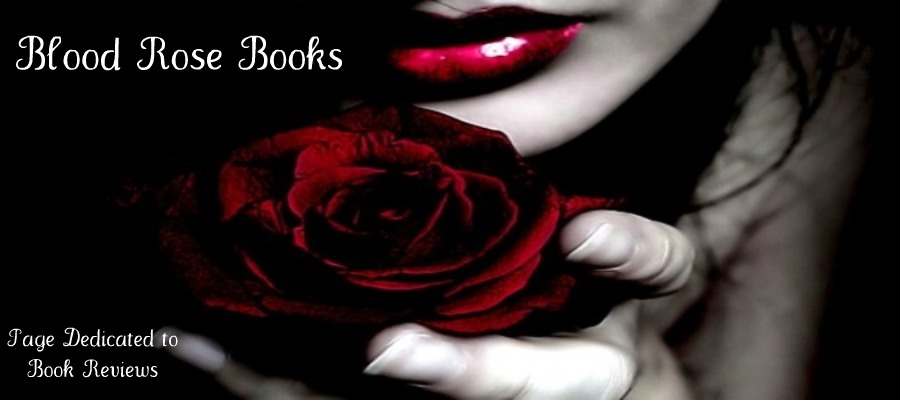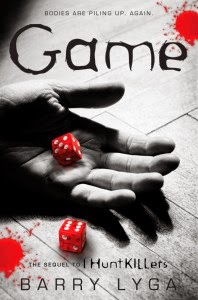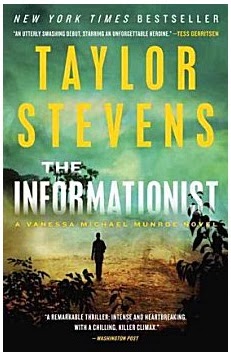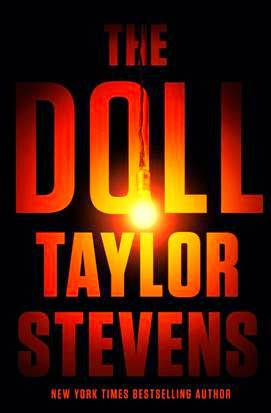I am always looking for male authors in the UF genre as I find they have a unique point of view for this genre. When I had to read Nicholoas Kaufmann's novel Dying is My Business I knew I wanted to have an author feature with him. He has so many interesting and cool ideas. Please Welcome to Blood Rose Books:
Nicholas Kaufamann
If there was one author you could co-write a novel with (they can be alive or dead) who would you choose and why?
Wow, you're starting off with a really
hard one! There are so many favorite authors I would love to work with
that it's almost impossible to choose just one. I suppose I would have
to choose my favorite author of all, Peter Straub, but I say that with no small amount of hesitation. He's such an exquisite writer, a maestro, and I feel like I'm nowhere near his level of prose. So if we worked together, I'd probably be worried the whole time about bringing the quality level down. Still, I think the process of co-writing with him would be incredible, and I have no doubt I would learn so, so much from him.
Is there a book, author, story or person that inspired you to become a writer?
I've been writing stories since before I knew how to write. Back then, I would just
draw my stories instead. So it's hard for me to tell if there was any
one thing or person that inspired me to become a writer. I loved the
monster movies I saw on TV, especially the old Universal horror films,
Godzilla movies, and Sinbad movies. The creatures always got my
imagination fired up. So if there's a root to my telling stories, it's
probably those movies. I became a voracious reader as I got older. I read a lot of science fiction and fantasy in high school and college. As much as I loved horror, I didn't read a lot of it outside of Ray Bradbury's darker work, like Something Wicked This Way Comes and The October Country. Then one day I discovered Clive Barker's Books of Blood series, and I realized what I'd been missing all my life. Barker showed me what good horror fiction could do. It set me on the path of reading and writing more horror, and that's what led me to where I am today. While Dying Is My Business and its sequel, Die and Stay Dead, are labeled urban fantasies, there's a strong current of horror
that runs through them. I suspect there will be some horror elements in
pretty much everything I write. It's hard for me to turn it off.
The
Urban Fantasy / Paranormal genres appear to be the genre that everyone
is writing in these days (even authors that are well established in
other genres), what do you think draws authors to these genres? Why did
you decided to release your debut in this genres? How do you believe
your novels stand out from the rest of the crowd?
Dying Is My Business
isn't really my debut, though it is my first truly commercial, widely
published novel. I've had story collections and novellas published by
small presses, and a full-length commercial novel published widely but
not under my name (Hunt at World's End, which was published originally under the house name Gabriel Hunt, but has since been re-released by another publisher with my name on it.)
I don't know why other authors are drawn to urban fantasy, but I know why I am. As I mentioned earlier, I grew up reading a lot of science fiction and fantasy. One thing I could never really get into about the fantasies I read was their setting. I just didn't care about these imaginary kingdoms with odd names. The characters had weird names, too, spelled with so many random apostrophes and hyphens that I had no idea how to pronounce them.
It got to the point where if I picked up a fantasy novel and it had a
map in the front of its fictional lands and a glossary in the back of
all their special words, I would put it down again. It just turned me off. In fact, I poke a little fun at those kinds of fantasies in the early chapters of Dying Is My Business, where Trent is trying to read an archetypal fantasy novel complete with maps, glossaries, and unpronounceable names. But then, later, I started seeing more
fantasy novels that were as filled with magic and monsters as any other
but took place in recognizable settings. Cities, mostly, and as a city
dweller myself that spoke to me. I'll admit I also liked that the
characters didn't have unpronounceable names and that no maps were
necessary.
I think another thing that drew me to urban fantasy is that it's the most horror-like of the fantasy spectrum. Horror is often about the intrusion of the supernatural into our everyday, recognizable life, and urban fantasy does much the same. That mix of regular life with something beyond the everyday, whether that something is full of wonder or terror, really speaks to me.
What do you think would be the hardest or most challenging genre to write a novel in and why?
I think it's challenging to write a novel in any genre! I know the better writers out there make it look easy, but I can assure you it's not. There's a lot of effort and frustration involved, just like with any job. And just like with any job, it helps a lot if you love doing it.
Trent
has a very interesting ability of not being able to die, is there some
sort of metaphor in there of you never wanting to die or how did you
come up with the concept for his power?
 Everyone
is scared of dying. Mostly because we're worried it'll hurt, and
because we don't know what happens afterward. Do we survive as spirits
or some kind of conscious energy? Do we simply cease to be? Both answers
are actually quite comforting—if we live on as spirits there's nothing
to worry about, and if we cease to be we won't worry about anything
anyway—but it's the not knowing that really scares us. There's also a sadness to dying. We're sad at the thought of leaving our loved ones, and we're sad when they leave us.
Everyone
is scared of dying. Mostly because we're worried it'll hurt, and
because we don't know what happens afterward. Do we survive as spirits
or some kind of conscious energy? Do we simply cease to be? Both answers
are actually quite comforting—if we live on as spirits there's nothing
to worry about, and if we cease to be we won't worry about anything
anyway—but it's the not knowing that really scares us. There's also a sadness to dying. We're sad at the thought of leaving our loved ones, and we're sad when they leave us.
But
people read horror and fantasy to experience things they don't in their
everyday lives. Horror in particular is a safe way of exploring death
and its ramifications. It allows us to practice grieving without having
to lose a loved one, and it shows us death without putting us in actual
danger. I'd lost some people in the recent past, including my father,
and I think subconsciously I wanted to explore death a bit in Dying Is My Business. And what better way than to have a protagonist who dies frequently and can come back to report on it?
Trent is very much the anti-hero, he is a thief, and he only takes on tasks that benefit him and his quest for his past. What do you think is the appeal of writing your protagonist as an anti-hero?
Everyone
loves a badass, including me. I love characters who you think are bad
but show their goodness when their backs are against the wall. For me, it probably all stems from Han Solo, who has become the archetypal badass, rogue character for so many people of my generation. (And that's why it was so important that he shot first. There's a world of character difference between someone who shoots Greedo in cold blood and someone who shoots out of self-defense.) For the generation that followed mine, their Han Solo would probably be Severus Snape, who seems at least somewhat evil throughout the Harry Potter novels but is then revealed to be a hero at the end. It's an archetype that people will always respond to, because that kind of character can get away with doing things we only wish
we could do sometimes, but then at the end they show that they're not
so bad at all—which effectively lets them off the hook for all the bad
things they did. It's a kind of wish fulfillment, I suppose.
I
also think personal quests are important for a satisfying narrative,
and Trent struck me as desperate enough to do anything, even perform questionable work for a crime boss, to get the answers he needs. And that leads to some great drama. Besides, it's always a more satisfying narrative to watch a character climb a ladder than to already be at the top of it.
Other
than Trent’s mission to find his past, the main theme of the book is
the battle between good and evil (with always that gray area in there), and there seems to be some folklore and tales woven in there as well, especially with the Gargoyles (I loved the gargoyle aspect). Are any of the elements within the book based upon folklore that you have researched? Are there any folklore that pique your interest that you could meld into Trent’s world?
It's funny you should say that, because the gargoyles were actually
less iconic to me than the Black Knight. The image of the Black Knight
riding his armored horse down a crowded New York City street while cars
swerve all around him was one of the first images that came to me when I set out to write the novel. There's always been a part of me that's drawn to monsters, as I mentioned, and gargoyles are definitely cool monsters, but
I think there's a part of me that has always been fascinated by
knights, too, especially the whole King Arthur story. It might stem from
having seen the movie Excalibur at a young age (really too young for such a violent and sexually explicit film; it disturbed me for weeks afterward).
In terms of folklore, I'm fascinated by the ideas of zombies (the old kind, where the dead are basically used for slave labor, not the new kind where they eat you) and necromancers and anything that can take control of your body away from you. So it's no surprise, I guess, that the main villain of the series is Reve Azrael,
a necromancer who can raise an army of the dead by forcing her will
into corpses in order to control them. Of course, since Trent can't die,
she's especially fascinated by him. While good vs. evil is one of the themes, the series is almost more about life (Trent) vs. death (Reve Azrael) instead.
I'm not really interested in making a noir film, though I love them. If I were to get into filmmaking, I think I'd definitely do horror movies. They would certainly have an element of noir to them in the characters and especially in the use of shadow and light when composing a scene. Dying Is My Business did not play out like a noir film in my head, either, though the influences were obviously there. It played out much more like an adventure film, James Bond with monsters. Obviously, there's a world of difference between James Bond and Trent, but I love the action set pieces of the Bond films so much that I used the same approach to the action in the novel.
Do you have any information on upcoming works or events that you are able to share?
I mentioned the sequel earlier, Die and Stay Dead. It's coming out from St. Martin's Today, September 30, 2014. I'm very excited about it. I'll be doing a few events for it in New York City and maybe even in the surrounding area. Keep an eye on my blog for announcements: www.nicholaskaufmann.com. I'm working on the third Trent book right now. If the first two books do well enough, you should see book three, which is tentatively titled Only the Dead Sleep, out in 2015. I've also got some other novels percolating in the back of my mind. At some point, I'd love to write a graphic novel as well.
What is one book (other than one of your own) that you think should be a must read for everyone?
 There are so many! So many! I've
rewritten my answer ten times already! But since I mentioned it before
and because it was such a huge influence on me, I'd say Clive Barker's Books of Blood. (It was originally a series of story collections, but it has since been bundled into a single volume, so it counts!) I learned so much about language and plotting and thinking outside the box of standard-issue
genre tropes from those books. Barker is such an amazing writer, and
his imagination always goes places that feel fresh and new. Everyone
should read him, whether it's Books of Blood
or one of his many superlative novels. But it helps to have a strong
stomach. He doesn't shy away from gore and body horror and all that
yucky stuff that I secretly love.
There are so many! So many! I've
rewritten my answer ten times already! But since I mentioned it before
and because it was such a huge influence on me, I'd say Clive Barker's Books of Blood. (It was originally a series of story collections, but it has since been bundled into a single volume, so it counts!) I learned so much about language and plotting and thinking outside the box of standard-issue
genre tropes from those books. Barker is such an amazing writer, and
his imagination always goes places that feel fresh and new. Everyone
should read him, whether it's Books of Blood
or one of his many superlative novels. But it helps to have a strong
stomach. He doesn't shy away from gore and body horror and all that
yucky stuff that I secretly love. I just want to say thank you once again for Nicholas for taking the time to answer my questions. I know I cannot wait to get my hands on Die and Stay Dead.



















